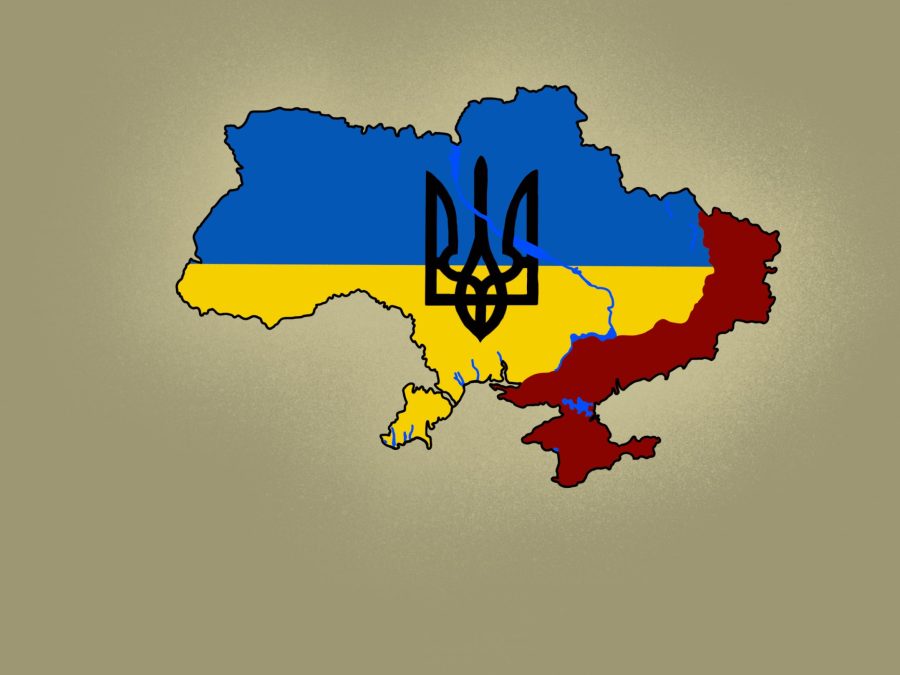Putin’s Christmas Ceasefire
February 12, 2023
On Thursday, January 5th, Russian President Vladimir Putin ordered a 36-hour ceasefire on the Ukrainian front line. Putin claims the truce allowed Russians and Ukrainians to observe Orthodox Christmas on January 6th and 7th.
Putin’s truce offer comes at a conspicuous moment of loss for Russia. Since early December, Ukraine has made gains in both its eastern and southern counter-offensives, reclaiming over 3,000 square miles of territory in the Kherson region and driving Russian forces away from Ukraine’s capital, Kyiv.
As Putin’s military faces unexpectedly swift advances by the Ukrainian army, Russia’s proposed ceasefire seems like a convenient chance for Putin to regroup and remobilize troops to counter Ukraine’s recent wins. According to Reuters, President Zelenskyy pointedly addressed Russia in his nightly video statement, “[Russia] now want[s] to use Christmas as a cover, albeit briefly, to stop the advances of our boys in Donbas and bring equipment, ammunitions, and mobilized troops closer to our positions.” As Anneliese Mattox ’24 tells the Register Forum, “The real purpose was to give [Russia] more time before they re-engage.”
The ceasefire is also Putin’s effort to gain support via religious rhetoric. Putin has long capitalized on support from conservative Orthodox Christians, his main base of popularity in Russia. In fact, Putin justifies the invasion by claiming Russians and Ukrainians share a “spiritual space” and must be reunited. The Russian patriarch (leader of the local Orthodox church) claimed that despite their distinct national identities, the two groups share a “common historical fate,” implying that the eventual takeover of Ukraine by Russia is inevitable and essential.
With Ukraine’s increased military capacity and international sanctions crippling Putin’s forces and lowering Russian morale, it seems Putin would be open to negotiation. But despite months of economic catastrophe and low military morale, Putin is secure in his conviction that he can win the war. But the long-term results of Putin’s ceasefire are still unclear. Pro-Russian Orthodox Christians in eastern Ukraine might feel growing resentment toward the West and the Ukrainian government, seeing the West as a threat to their religion. However, others are hopeful that Orthodox Christians around the world will understand Zelenskyy’s motivation for rejecting the ceasefire. Sebastian Prasanna ’24 tells the Register Forum, “[Zelenskyy] is doing it as a statement to Russia that Ukraine is not going to back down, and I think that people will agree that that is a good enough justification.”
Putin’s ceasefire might also widen the rift between Russia and Ukraine. Recently, there has been a shift in Ukraine away from Russia. The Ukrainian Orthodox Church has allowed the celebration of Christmas on December 25, strengthening ties with the U.S. and Europe, and many Ukrainians have chosen to celebrate Christmas on this date instead to unite with the West and shun the Russian patriarch. Support for joining international organizations has increased significantly, with 80% of Ukrainians now wanting to join NATO, up from 30% just ten years ago. As the international community rallies behind Ukraine and President Zelenskyy shows an unwavering refusal to concede to Putin, Ukraine’s fight is a cornerstone in the global mission for freedom and human rights.
This article also appears in our January 2023 print edition.









